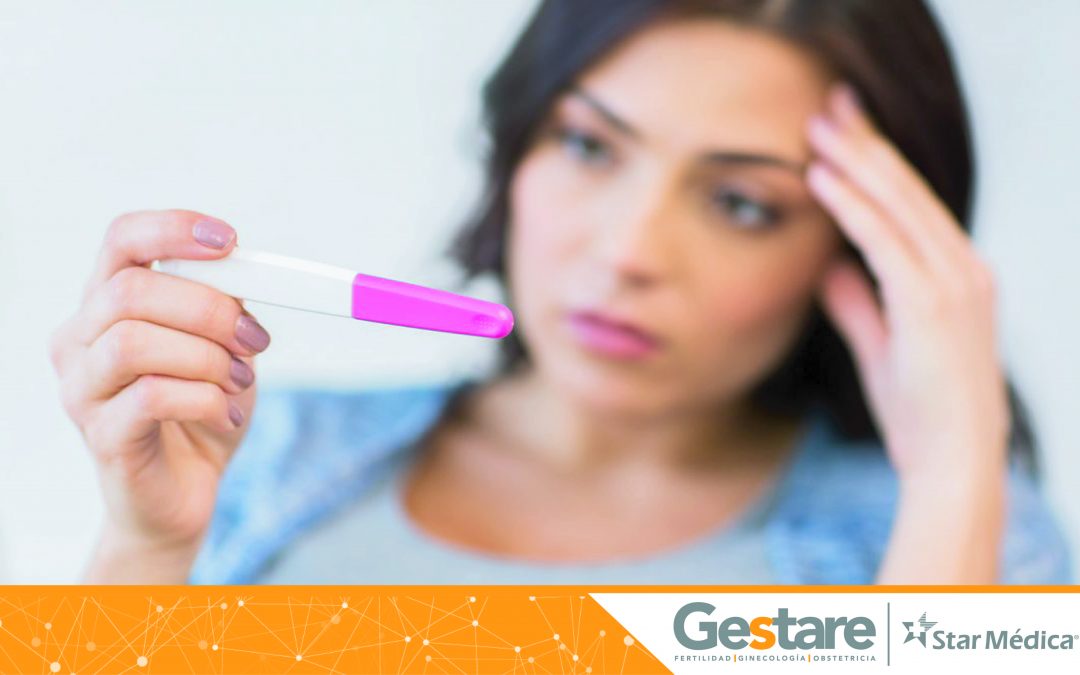If a woman has difficulties getting pregnant
Those could be the causes.
- Ovulation – Ovulation is the time in a woman’s menstrual cycle when the ovary releases an egg into the fallopian tube. This moment is regulated by hormones. Pregnancy can occur when the sperm fertilizes the egg as it travels to the uterus. A woman is more likely to become pregnant if she is sexually active 1 to 2 days before or even on the day of ovulation. Also, in some women, ovulation does not occur regularly in all cycles.
- Uterine or fallopian tube disorders – For example, some women have tubal occluding tissue due to previous infections or surgery.
- Endometriosis – A disease that can cause pelvic pain, and can be a cause of tubal occlusion as well.
- Late age – Once a woman passes the age of 35, fertility slowly begins to decline and becomes an important factor after the age of 38.
When should you Make an appointment?
You should visit us if you’re unable to get pregnant after one year of unprotected sex, or if you are already a mother, and you are unable to get pregnant after 6 to 8 months without contraception and frequent intercourse.
Make an appointment and we will be pleased to receive you.
If you are over 35 and don’t have your period every month or have been trying to get pregnant for 6 months and haven´t been able to do it, you should see your doctor.
Your doctor will advise you and do a series of tests, to try to find out the cause of the problem. Your partner may need to have some tests as well. Don’t be surprised if your doctor can’t tell you what’s wrong in a first visit – it’s not always possible to know why a woman can’t get pregnant.
Is there something I can do by myself?
If you are overweight, losing weight can be of great help for you to get pregnant. And remember, try to get healthy habits.
Which treatments are available?
Women who are having trouble getting pregnant may choose to have one or more of the following treatments. You and your doctor will discuss which treatment is the best for you. Such treatments may include:
- A drug called clomiphene (brand names:) – clomiphene improves the chances of ovulation occurring. This is the first-line treatment most of the times. Your doctor will tell you how and when to take this drug, and he or she will tell you when to have sex for the treatment to have its maximum benefit as well. If this medicine does not work after a few months, your doctor may recommend drugs to help with ovulation.
- Hormone treatment – Is often recommended if a woman doesn’t get pregnant with clomiphene. Hormones improve the chances of ovulation occurring. Your doctor will indicate to you how and when to do this treatment.
- Intrauterine insemination – For this treatment, a doctor uses a tube to place sperm directly into the woman’s uterus. That’s done just before ovulation. For some women, this treatment is combined with clomiphene or hormone injections to increase the chances of pregnancy.
- Vitro fertilization, also called “IVF” – Is a procedure that’s usually done, if previous treatments haven’t worked and includes:
- Hormonal Stimulation. Receive periodic hormone doses, to make the ovary ready to ovulate.
- Just before ovulation, the doctor uses a thin needle, through the vagina guided by ultrasound, to remove some eggs from ovaries.
- The eggs are placed with sperm, in a special medium, to be fertilized.
- After 2 to 5 days, the fertilized egg or eggs are placed in the woman’s uterus. Hopefully, one of the eggs will attach to the uterus and grow into a pregnancy.
- In vitro fertilization is usually done in women:
- When there are no fallopian tubes, or they are damaged or plugged.
- With those who have not been able to get pregnant using other treatments.
How do I know if the treatment is effective?
Your doctor will do tests at different stages during treatment to see if it is working. These tests may include blood test and ultrasound.
Does treatment always work? No.
Even though Treatments have a great success-ratio, not all women get pregnant after it. Treatment may vary on each case.
How do I decide which treatment to choose?
Ask your doctor about the advantages and disadvantages of different types of treatment. To choose the treatment that is right for you, please considerate:
- Ask the doctor, which are the odds for this treatment.
- Cost of treatment – Some treatments are more expensive than others, some health insurance does not pay for all types of treatment.
- Ask the doctor how long the treatment last -Sometimes treatments, to be effective, need to be done more than once, to get pregnant, so it could take months or years.
- Side effects and inconveniences of treatment.
A woman may have difficulty making these decisions. She may find it helpful to talk to a counselor or a support group, for people having trouble getting pregnant.

